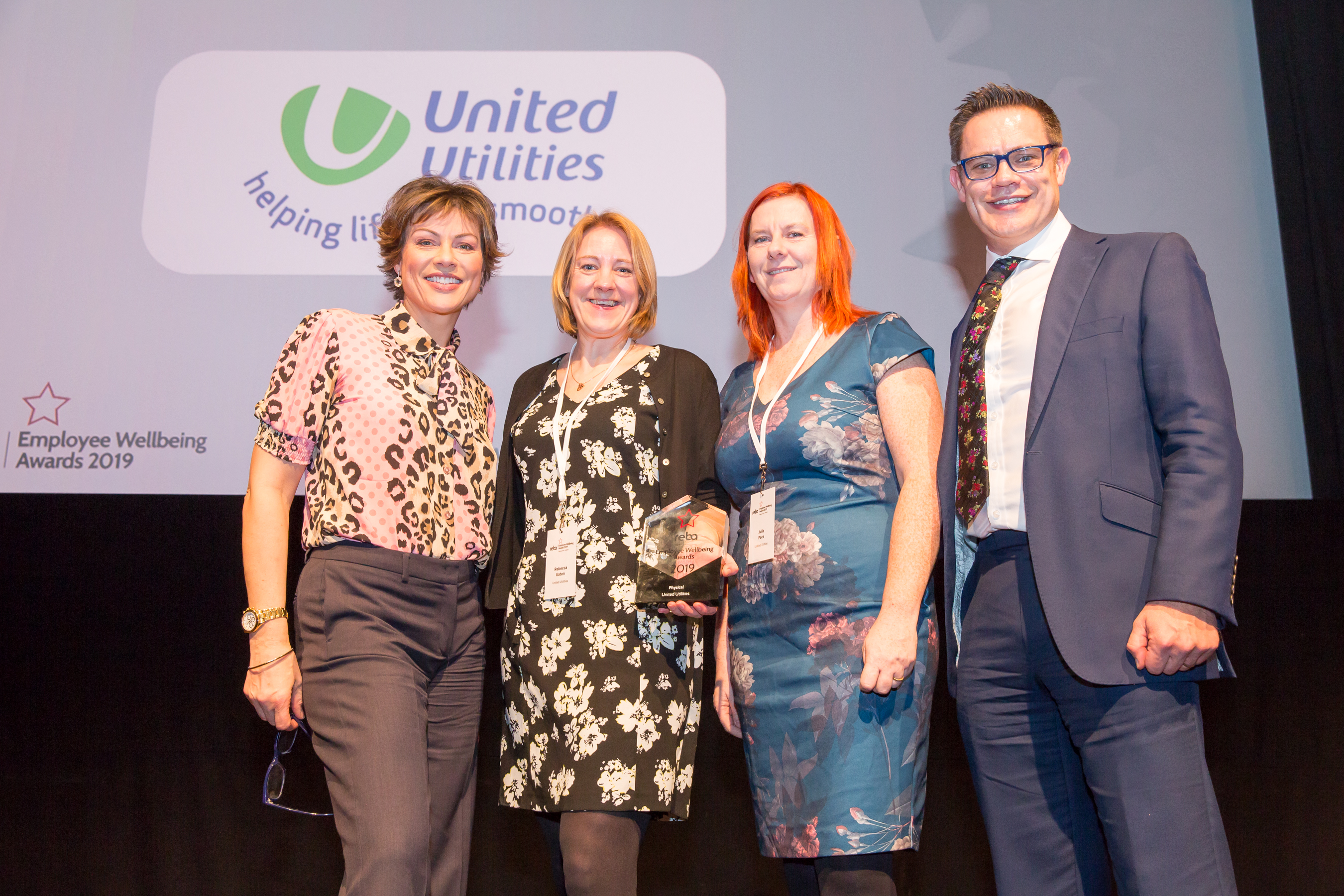REBA Awards Winner: Physical Wellbeing - United Utilities

Size: 5,500 (UK); 5,500 globally
Sector: Utilities
Initiative: Delivering physical health improvements through engagement
WHAT IT DID
Government recommendations that adults do 150 minutes of moderate-intensity aerobic activity a week are a tall order for many. Recent data finds 20 million Britons are so sedentary they could be classed as ‘physically inactive’. But this particular description can now be leveled at much fewer staff at water and waste water company, United Utilities.
Thanks to a programme designed to transform engagement by improving inactive employees’ physical health, the firm has achieved some stunning results – most impressive of which has been reducing the percentage of staff not doing enough exercise from 34.2% of the UK workforce to 26.7%.
Part of what makes this such a successful initiative however, was the emphasis from the start it took to encourage employees to take ownership of their own health rather than be ‘told’ what to do from on high. It did this by helping staff understand the benefits of good health themselves, by providing as many signposts as possible, supported by services and facilities to help staff boost their health. For instance, it installed kiosks enabling staff to accurately measure their weight and blood pressure; it incentivised staff to join a funded smoking cessation course (costs reimbursed to staff if they stay smoke-free for six months); it encouraged walking meetings and it also provided standing hot-desks. What really caught judges’ eyes were its attempts to make exercise fun – by having monthly digital activity challenges, some of which have included its ‘Mighty Hike’, ‘Ultimate Team’ ‘Walking Home for Christmas’ and ‘Billion Step’ challenges.
It also signed up to the Active Workplace pledge through charity, Active Cheshire, which involved it submitting a strategy to see more people get active. These more innovative elements also supported traditional components too – such as providing Slimming World vouchers; installing more cycle racks to encourage Cycle to Work, working with its caterers to provide healthier meals in its canteens, and providing gym access. But the innovation didn’t just stop at running health challenges.
To ensure staff had fewer reasons to opt-out of cycling or running/walking to work, United Utilities created a ‘Get You Home’ policy at its head office – whereby it guaranteed to get those who’d ‘actively’ commuted to work home if they needed to suddenly be there in an emergency (for instance having to do unplanned elder or childcare). This was particularly applauded by judges. The business is now also an active participant of the Britain’s Healthiest Companies poll – which requires detailed information about how employees’ ‘health age’ differs from their biological age (the extent to which their bodies are older or younger than their birth age might suggest).
WHY IT WON
Superb reductions in inactivity rates notwithstanding, United Utilities has proved that engineering a healthier workforce need not be a pipedream. While it’s often hard to accurately measure health improvements, the utility company has impressive statistics it can call on – 958 employees (one fifth of the workforce), registered on its health digital platform; with 750 staff taking part in its most popular challenge.
In addition to this, membership to its onsite 24/7 gym has swelled to 700 members, with participation in running and cycling classes high. Best of all though, judges noted how United Utilities took its time to assess what initiatives might work, plumping for the fact that it sensed rewarding people to ‘take part’ rather than ‘win’ would be a better solution. It’s clearly been a good decision. Some 3,400 staff have now used the health kiosk, averaging around 300 tests each month. Particularly rewarding is the fact it’s also achieved a 65% success rate for a smoking cessation courses. The percentages of smokers in the workforce is the lowest it’s ever been, at just 7%.
